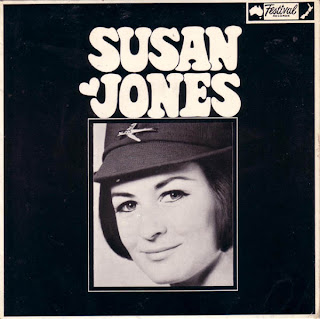
Heigh Ho/Stupidity/Like I Love You/Speechless
Peter Doyle (28 July 1949 - 13 October 2001) was a naturally gifted performer who started out in music when he was a child. By the age of nine he was already appearing on the Melbourne television talent show Swallow's Juniors. At fourteen, he was performing in Sunday afternoon pop shows at Melbourne's Festival Hall and by sixteen he'd scored a solo record deal with Ivan Dayman's Sunshine label (which included Normie Rowe) and became a regular on Melbourne's The Go!! Show.
Between 1965 and 1967 Peter (backed by veteran Melbourne band The Phantoms) Peter released eight solo singles, six for the Sunshine label and two more for Astor. His first two singles were Top 20 hits: his debut single, a cover of Conway Twitty's "Speechless (The Pick Up)" peaked at #14 (May '65) and the follow-up, "Stupidity", peaked at #11 (July). His cover of the Small Faces' "What'cha Gonna Do About It" only got to #35 (Nov. ’65), but a version of The Platters' classic "The Great Pretender " fared better, reaching # 22 in Jan. 1966, although this proved to be his last charting solo single in Australia. His last two Sunshine singles were "Something You Got Baby" in May, and "Mr Good Time" in November 1966.
In 1967, following the collapse of the Sunshine label, Peter switched to the Astor label and issued two singles "You Can't Put That in a Bottle" (April) and Neil Sedaka's "Plastic Dreams and Toy Balloons" (June). His backing band during this time was Grandma's Tonic, a group formed by ex-members of Tony Worsley's backing band The Fabulous Blue Jays) and who also later backed Normie Rowe, Jahnny Farnham and others.
In May 1968, with his solo career waning, Peter peroxided his hair and joined the Walker Brothers-styled vocal trio The Virgil Brothers, taking over from original recruit Mick Hadley (ex Purple Hearts) who was uncomfortable with the commercial orientation of the new group and left after only a few rehearsals. The other members were both formerly part of the original incarnation of The Wild Cherries singer/guitarists Rob Lovett (The Loved Ones) and Malcolm McGee (Python Lee Jackson). The Virgil Brothers released two singles in Australia in 1968, "Temptation's 'Bout to Get Me", which was a Top 5 hit), "Here I Am" and "When You Walk Away". McGee left in 1969, just after the trio had relocated to the UK, and he was replaced by Danny Robinson, vocalist extraordinaire and ex-frontman of the highly regarded “Mark II” version of The Wild Cherries with Lobby Loyde. They cut their third single with David McKay before Peter also quit and the trio dissolved.
Shortly after the Virgil Bros split in 1970 Peter joined Lyn Paul and Paul Layton in the second lineup of The New Seekers, replacing founding members Sally Graham, Chris Barrington and Laurie Heath. The clean-cut pop harmony group had been put together by former Seeker Keith Potger who had retreated into the less public role of manager after initially performing with them.
At first ignored in the UK, the group broke through thanks to a string of American hits, beginning with Top 10 cover of Melanie Safka's "What Have They Done To My Song, Ma". More hits followed, including "I'd Like to Teach the World to Sing" (originally written as a soft-drink jingle), "Beg, Steal or Borrow" (the UK's 1972 Eurovision entry, on which Peter shared the lead vocal with Lyn Paul) and the New Seekers' valiant cover of Pete Townshend's "Pinball Wizard" / "See Me, Feel Me" which featured Peter and Marty Kristian on lead vocals. New Link Added 07.08.2020

















































